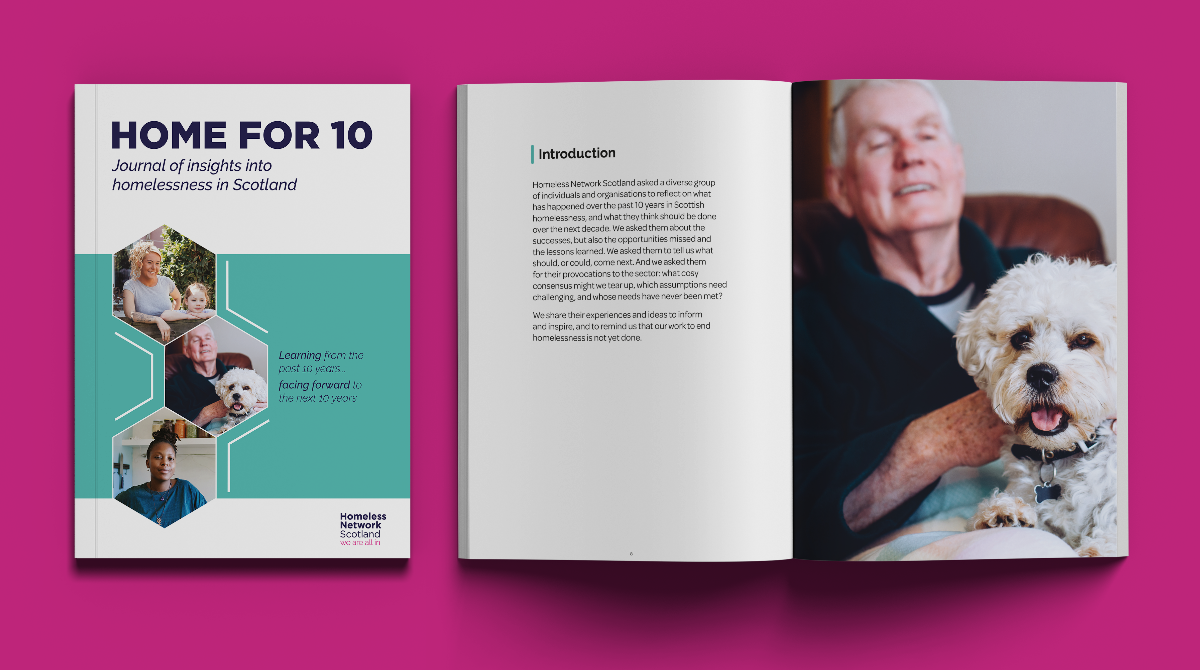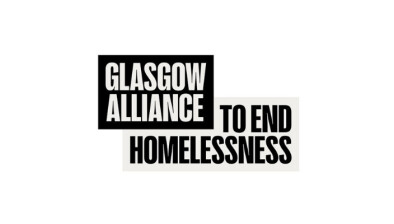New journal marks 10-year anniversary of Scotland’s commitment to end homelessness

The new journal from Homeless Network Scotland
A collection of insights into homelessness in Scotland has been published to mark the 10-year anniversary of the 2012 commitment which had set Scotland apart internationally in how seriously it took the task of ending homelessness.
The 2012 commitment was the result of legislation passed by the Scottish Parliament in 2003 so that everyone who is homeless would have a right to a home by 2012. For local authorities, this meant ending the assessment of whether people were ‘priority’ or ‘non-priority’ and instead giving every person who was ‘unintentionally homeless’ the right to a permanent home. This monumental change – in culture as well as legal terms – is considered to be the bedrock of Scotland’s acclaimed housing and homelessness rights.
But homelessness didn’t end in 2012, despite a promising downturn over several years that followed. A small upturn over the recent period has been coupled with the highest use of temporary accommodation on record, now understood as an unintended consequence of increasing housing rights without a corresponding increase in housing supply in the places people want to live. This has led to a series of measures from 2018-22 to adjust the course, with more focus on rapid rehousing, on prevention and on housing access and supply.
Homeless Network Scotland invited 10 of the housing and homelessness sector’s key experts with a reach backwards of at least 10 years to provide their insights - and provocations – for the wider sector. Another 10 people with a fresh perspective – or who have a vantage position and with broad oversight – were invited to describe what the way forward looks like.
The themes running through the journal underline the multi-faceted nature of homelessness and the corresponding need for versatility in responses. Contributors highlight the diversity of individual experiences and needs, along with the importance of trauma-informed approaches to support, and the power of offering flexible, personalised solutions. There are calls for systems change by streamlining and collaborating to break down siloes.
The journal highlights the impact of policy and legislation over the past decade and more – that these were not easy gains, and it will require tenacity to expand rights and entitlements based in law, to build new homes and to focus on prevention so that progress continues towards ending homelessness in the years to come.
Contributors highlighted the impact of trauma on individuals as they attempt to navigate housing and other systems. They suggest that we are still at an early stage with trauma-informed responses and, to realise fully their transformative potential, staff need greater depth of understanding. But questions are raised about workforce resilience and the sector’s struggles to recruit, train and retain the skilled staff it needs. Economic concerns are not confined to the workforce – the rising cost of living at a time of great uncertainty and challenge is a thread running through the journal’s pages, for households and for local authorities.
Change takes time and effort, and progress can be piecemeal when consensus is hard to come by. Successes of the past decade such as reducing rough sleeping, introducing Housing First and removing priority need are significant. There are calls now to focus on homelessness prevention, on reducing length of stay in temporary accommodation, and on personalised housing options. Contributors also advocate for change, in both policy and practice, to tackle the marginalisation of people by our current system. Their understanding of the experience of women, refugees, young people, and people using drugs highlight where investment is needed to achieve equality of access and a system that works for everyone.
A final theme to highlight is collaboration – with people with lived experience, between organisations and local authorities, and with government. Partnerships have enabled the changes we’ve seen in the past decade and in response to Covid, but there are calls for an evolution in what that collaboration looks like: being open to change and to take risks for the greater good – not only in delivery, but also in funding and commissioning. This is a call for system change across the sector, embracing alliance and integration as the way forward.
The journal is available here.









